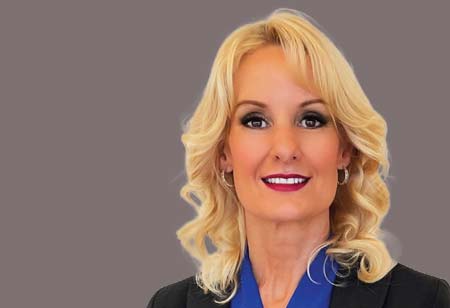

Thank you for Subscribing to Insurance Business Review Weekly Brief

One reason for rising policy costs is increasingly large jury verdict awards. Keeping insurance rates low and reducing risk requires understanding why there are nuclear and even thermonuclear verdicts and what can be done about it. Companies are expected to consistently conduct their business in a manner that shows superior, or at least good corporate citizenship. If so, this will severely diminish, if not eliminate, the ability to use the “Reptile Theory” in court to arouse fear and anger in jurors that result in nuclear verdicts. Reptile tactics are not a threat to a business if safety is first in practice, not just in words. Companies must understand and evaluate the risks, put proper loss control and communications in place, and advocate and provide oversight in claims to mitigate the likelihood of large verdicts and the severe effects on insurance rates and the financial health of businesses.
Excessive jury awards have increased dramatically in recent years, especially in personal injury auto and truck accidents. These large verdicts have been coined "nuclear verdicts" when damage awards exceed $10 million. Now, there are “thermonuclear verdicts” when jury awards exceed $100 million because the term “nuclear” does not evoke the depth of these explosive jury awards. One example is a recent jury verdict in April of 2023. A Texas civil court jury awarded more than $860 million to the family of one of the victims of a 2019 tower crane collapse. Texas Defense attorney Ben Westcott of the firm of Andrews Myers pointed out: “Smith vs. Greystar - a Dallas crane collapse case - is a recent example of how juries can be compelled to issue a nuclear verdict. The jury awarded $160 million more than the family requested based on lax safety enforcement, excess work hours, past due inspection certificates, and OSHA violations.” Large verdicts make it difficult for insurers to assess risk and thus drive premium increases. By the numbers, the trucking industry has been hit hard. Thermonuclear verdicts or large settlements are increasing in bodily injury automobile accidents, premises liability claims, security and alarm services, insurance, and intellectual property cases, especially patent litigation. There is also an increase in settlements and jury verdicts for injuries believed to be due at least in part to construction site safety violations and due to a lack of security in place at apartment complexes and retail spaces. A critical factor in large awards is jurors becoming angered by a seeming lack of reasonable or industry standard safety measures practiced or enforced by companies whose employee's action or inaction resulted in physical losses to a third party. To trigger this anger and the need to punish defendants, the plaintiff’s attorneys use what is referred to as the “Reptile Theory.” This tactic attempts to arouse the reptilian part of jurors' minds, which is the need to be safe, and thus enrage them to want to send a strong message by punishing defendants who conduct business in a seemingly unsafe manner. Jurors are asked to send a message to the industry that unsafe practices will not be tolerated. Distrust of corporations and stirring up the emotions of jurors, asking them to question, ‘What if this were me?’ adds to the reptilian brain’s basic need to feel safe. The message appeals to the jurors, fight or flight: “Do we keep our loved ones off the roads? Or do we send a message to this company and the industry that safety must come first?” These plaintiff’s attorneys argue that we are not safe unless the message is heard loud and clear by hitting defendants with a large enough dollar amount to make an impact.In today’s climate of corporate distrust and stricter expectations of corporate safety standards, companies must have the resources to understand and evaluate the risks, and ensure proper loss control and communications.
I agree We use cookies on this website to enhance your user experience. By clicking any link on this page you are giving your consent for us to set cookies. More info